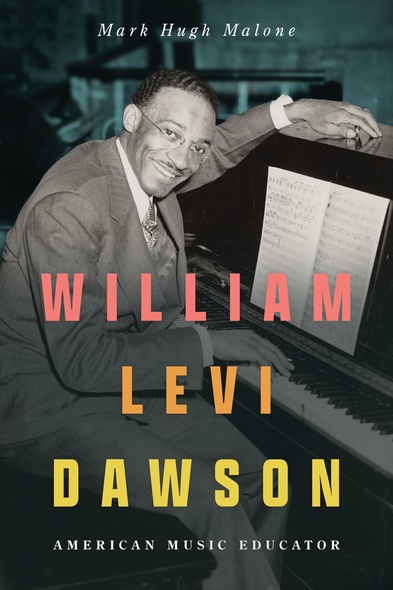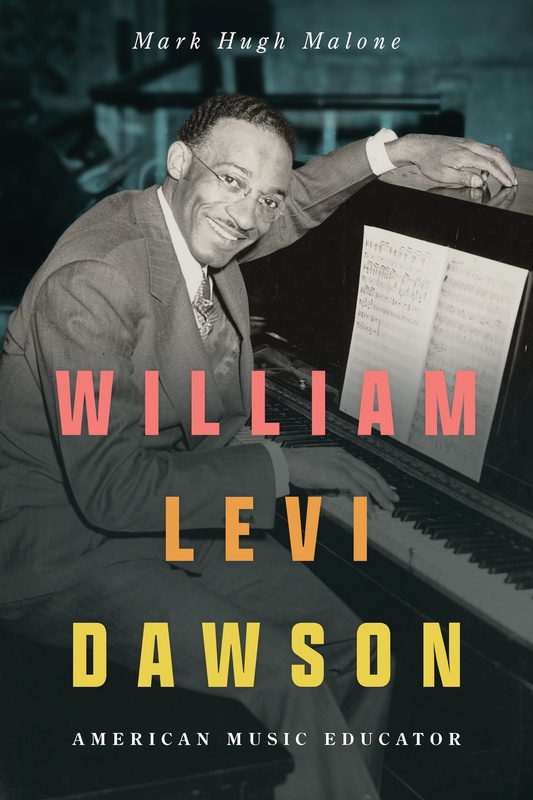
William Levi Dawson
American Music Educator
William Levi Dawson (1899–1990) overcame adversity and Jim Crow racism to become a nationally recognized composer, choral arranger, conductor, and professor of music. In William Levi Dawson: American Music Educator, Mark Hugh Malone tells the fascinating tale of Dawson’s early life, quest for education, rise to success at the Tuskegee Institute, achievement of national notoriety as a composer, and retirement years spent conducting choirs throughout the US and world.
From his days as a student at Tuskegee in the final years of Booker T. Washington’s presidency, Dawson continually pursued education in music, despite racial barriers to college admission. Returning to Tuskegee later in life, he became director of the School of Music. Under his direction, the Tuskegee Choir achieved national recognition by singing at Radio City Music Hall, presenting concerts for Presidents Herbert Hoover and Franklin D. Roosevelt, and performing on nationwide radio and television broadcasts.
Dawson’s Negro FolkSymphony, only the second extended musical work to be written by an African American, was premiered by Leopold Stokowski and the Philadelphia Orchestra in both Philadelphia and New York City. Dawson’s arrangements of spirituals, the original folk music of African Americans enslaved in America during the antebellum period, quickly became highly sought-after choral works. This biographical account of Dawson’s life is narrated with a generous sprinkling of his personal memories and photographs.
In William Levi Dawson: American Music Educator Malone has provided not only a balanced account of a musician and educator, but he has also shown that the influence of an exceptional mentor reaches far past the lifetime of the advisor.
William Levi Dawson: American Music Educator by Mark Hugh Malone is an impeccably well researched biography of a man who should be a household name, but somehow isn’t. . . . The book makes excellent and thoughtful use of author Malone’s interviews, as well as the personal memories and photographs of Dawson, his family, and peers to round out the person and the times. The biography tells an important story.
In William Levi Dawson: American Music Educator, Mark Hugh Malone has woven the first true narrative of Dawson’s life. Relying on his hours of interviews with Dawson, Malone’s meticulous research fills in the gaps to tell a complete story of one of the most iconic figures of twentieth-century American music. Here Malone lays out Dawson’s early years in the segregated 1920s, his meticulous work with the Tuskegee Choir which caused him to quickly rise to national prominence, and his later years as an honored senior statesman of choral music in the United States. Malone lays out a compelling story of the difficulties Dawson faced earning an education, facing racism from critics, and persevering to serve his students and art. This book should be required reading for all Dawson devotees as well as scholars of spirituals.
Mark Hugh Malone has taught in Mississippi at Pearl River Community College, William Carey University, the University of Southern Mississippi, and other institutions during his forty-six-year career in education. As curriculum designer for the Mississippi Arts Commission, he has created numerous arts-integrated curricula focused on the Mississippi Blues Trail, Mississippi’s bicentennial, and the Natchez Trace.




